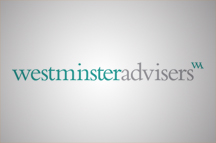 The prospect of a referendum on Britain’s membership of the European Union has been in the pipeline for so long that in many ways it’s difficult to believe that the vote is finally imminent. While the exact timings will be clearer after February’s European Council meeting, the respective campaign organisations are already gearing up to fight a possible referendum later this year.
The prospect of a referendum on Britain’s membership of the European Union has been in the pipeline for so long that in many ways it’s difficult to believe that the vote is finally imminent. While the exact timings will be clearer after February’s European Council meeting, the respective campaign organisations are already gearing up to fight a possible referendum later this year.
What do the respective campaign organisations look like, how are they shaping up so far and who are the key personalities involved?
On the ‘Remain’ side, Britain Stronger in Europe is the clearly established campaign group, chaired by Lord Rose, the former Executive Chair of Marks and Spencer. The campaign is run on a day-to-day basis by Will Straw, a former Labour parliamentary candidate and son of the former Home Secretary Jack Straw. Former Lib Dem advisers occupy key positions in the campaign team.
 The seemingly strategically orchestrated approach to Ministers and other key public figures publishing articles setting out their support for staying in the UK, and the recent distribution of ten million leaflets setting out the positive contribution that the EU makes to the UK demonstrate the campaign’s keenness to get on the front foot.
The seemingly strategically orchestrated approach to Ministers and other key public figures publishing articles setting out their support for staying in the UK, and the recent distribution of ten million leaflets setting out the positive contribution that the EU makes to the UK demonstrate the campaign’s keenness to get on the front foot.
While the Conservative Party are officially remaining neutral in the contest, it is clear that senior figures within government are already lending some tacit support to the remain campaign. Britain Stronger in Europe is expected to be designated the official ‘In’ campaign by the Electoral Commission in due course.
On the ‘Leave’ side, the picture is significantly murkier. The two most high profile campaigns are Vote Leave and Leave.EU.
Vote Leave has emerged out of the Business for Britain campaign who have formed together with Conservatives for Britain and Labour Leave to establish the group. Led by Matthew Elliott – founder of the Taxpayers Alliance – and Dominic Cummings – former adviser to Michael Gove – who both have significant experience of successful referendum campaigns, the group is seen as the more cross-party – and arguably more professional – of the two.
Leave.EU – backed by the UKIP donor Arron Banks – is closely aligned to Nigel Farage’s party, who with the exception of its only MP Douglas Carswell is not engaged with the Vote Leave campaign. Banks’ campaign has stressed its focus on engaging at a grassroots level, and positioning itself as not being a part of the ‘Westminster Village’.
Only one campaign can be designated as the ‘lead campaign group’ for leaving the EU. The successful campaign will receive an increased spending limit, campaign broadcasts, a publicly funded grant, and free mailing. Considering its cross-party make up and greater professionalism, at this stage it seems most likely that Vote Leave will receive this designation.
On top of this, multiple other Eurosceptic groups are campaigning to leave, most notably the recently established Grassroots Out group, spearheaded by Conservative MP Peter Bone.
Following the model set during the Scottish referendum campaign, expect to see the establishment of Remain and Leave campaigns aligned to each demographic group imaginable in the coming months. The recent establishment of the Eurosceptic Students for Britain and the pro-remain, Women IN campaign reflect this.
Questions persist over how the profligacy of so many groups campaigning to leave the EU will affect its ability to communicate a consistent and effective message. Will the infighting between Vote Leave and Leave.EU, in contrast to the united ‘remain’ campaign, compromise both of their abilities to secure a positive result for Eurosceptics?












